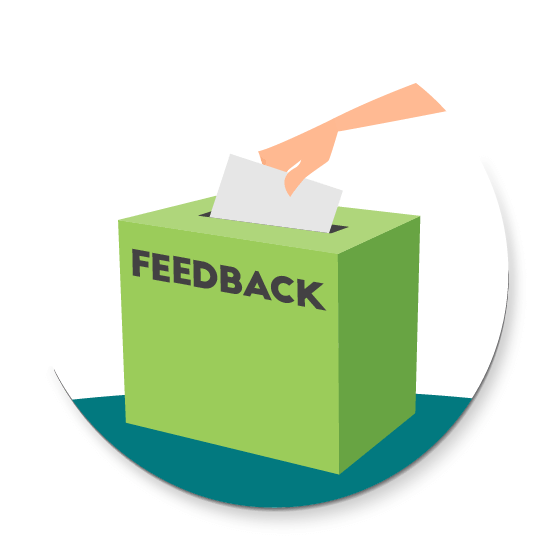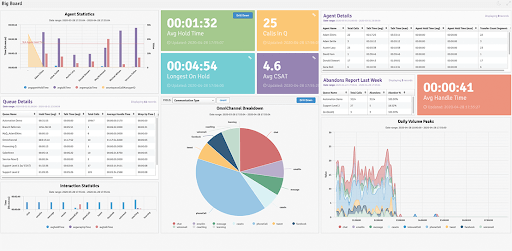
A Step-by-Step Guide to Search for Your Next Cloud Contact Center
It’s a daunting task to find new cloud technology for a contact center. The investment of new software affects a lot of people — your customers, your agents, your IT team, and you. How do you find new technology that meets the needs of your team and your customers? With ever-changing trends and the challenges to meet new customer expectations, you have to account for tons of factors. You need to ask the right questions and gather supporting info to commit to a new cloud contact center system.
>> Download Now: 101 questions to ask on your contact center RFP
Before you even look for a new cloud contact center system, survey and get feedback from the people it will impact the most — your agents and your customers. We’ve put together a list of questions to ask agents and customers to ensure that your new cloud contact center will help you deliver the best experience

Questions you should ask your customers, employees, and yourself before you research a new cloud contact center:
Ask yourself:
- What tools would relieve me of the most stress?
- Where do data gaps and hiccups in my processes exist that new technology can help fix?
- What small tasks could software help me take off my plate from day to day?
- What are some of the reporting or data capabilities I need to support my quality and workforce management?
Ask your agents:
- What’s not working in our technology processes? Are there too many systems to learn? Do you have difficulties accessing customer information?
- Do you get enough immediate feedback on your interactions to properly grow and develop?
- How easy is it to move between tasks and systems as you help a customer?
- How many duplicate requests do you get from customers in a day?
- Do you feel well connected and supported while working from home?
- How easy was it to learn to use your existing technology tools?
- How much visibility would you like to have on your service KPIs?
Ask your customers:
- What channels do you like to use to communicate with companies?
- What are your most frequent issues and questions?
- Do you wish you had access to better self-service tools or a smoother IVR to answer basic questions?
- Where are the major pain points in your customer experience?
Vendor Research
Then, dive into your vendor research. Don’t simply commit to a vendor based on a feature list you found on their website or a nice looking pricing package. Ask the right questions before you make such a big purchase. Remember, you aren’t just buying a product. You’re investing in a relationship with a vendor partner. You need one that will support you long-term and help you reach your business goals.
Questions you should ask before you commit to a vendor:
1. How well will the system integrate with your existing tools?
This is the first question to consider before setting up meetings and demos with a new vendor. It wastes your time and energy to meet with a salesperson only to find out — welp, this cloud contact center won’t even work with my existing tools. It’s important that your new cloud system can share data and integrate with your other systems, like your CRM and your ticketing system..
Before committing to any vendor, work with your IT team to determine how your existing systems can and should integrate with new ones. You don’t want to be doubling up functionality with your new software if you already have tools that work. So, ensure that your new system can integrate with your other tools so your new software is worth the investment.
>> Read Next: A Guide to Change Management in your Cloud Contact Center: 4 Strategies to Align People and Processes
2. How reliable and secure is the service?
The world goes into a standstill when Google,Facebook or, you name it — anything — goes down for even a few minutes. Utter chaos ensues. It’s true that technical difficulties are a legitimate challenge for any software vendor. Cloud systems can’t guarantee reliability 100% of the time.
But, you can’t afford for your cloud contact center to crash on a consistent basis. Ask potential software vendors what kind of uptime guarantees they have in place. You need a stable platform that supports your business needs around the clock. Do the vendors you’re shopping have downtime for required maintenance? And what does the impact look like for your team? Modern cloud technology vendors have a leg up, here, because software updates automatically push to their systems, making sure companies don’t have to schedule downtime for extensive updates.
In the same vein, security is an essential feature in a new cloud contact center. Hacks, data breaches, and ransomware attacks (unfortunately) occur often today. You want to make sure your new contact center system has security features that guarantee protection for your customers’ data and keep your company data secure.
>> Learn more: Sharpen’s approach to security and compliance
3. How scalable is your system?
You always want to account for potential growth in your company. Sure, today you may only have a 20-seat contact center. But, over time your company will add customers, and you’ll need to support and hire more agents as your business grows. Can your cloud contact center solution scale to meet the needs of a 50-seat contact center? Or, a 70-seat contact center?
As you grow, your needs will likely grow in complexity, too. Find a contact center system that accounts for flexibility and can expand with you as you grow. Make sure your vendor keeps up with current trends and partners with you to help you to stay current. As you make changes to your processes or add to your team, you want to know that your technology can adapt. Don’t lock yourself into a solution that can’t keep pace with your growth.
4. Does the solution have good reporting tools?
Reporting and analytics are the key to successful workforce management. How can you assure your customers that you’ll deliver the best experience if you can’t analyze all the data you gather? Find a system that offers comprehensive and user-friendly reporting tools. Look for cloud technology that has customized reports and dashboards.

If you can make real-time data available to your agents, you can manage their performance and assess their growth minute-by-minute. How you present your data to your executive team and to your agents also matters. The more ownership you can have over your reports and dashboards, the more control you have over the continued growth of your team and service.
>> Learn More: Get the reports you need to make better decisions for your customers (and agents)
5. Does the software have omnichannel capabilities?
Customers today expect to reach you from multiple channels without any hiccups. In fact, CX Today reports that 9 out of 10 consumers want an omnichannel experience with seamless service between communication methods. Omnichannel technology is essential for a modern cloud contact center. Your customers should be able to move from channel to channel, transferring their customer profile and data at every touchpoint.
Omnichannel support gives customers a more personalized experience. It gives your agents full context to address each customer’s issue effectively so they can do their job well. When your cloud technology can keep up with the latest trends in customer experience, you can stay on top of the ball in serving your customers. Look for omnichannel technology that prioritizes digital channels and automation to keep your system up-to-date with the latest trends.


